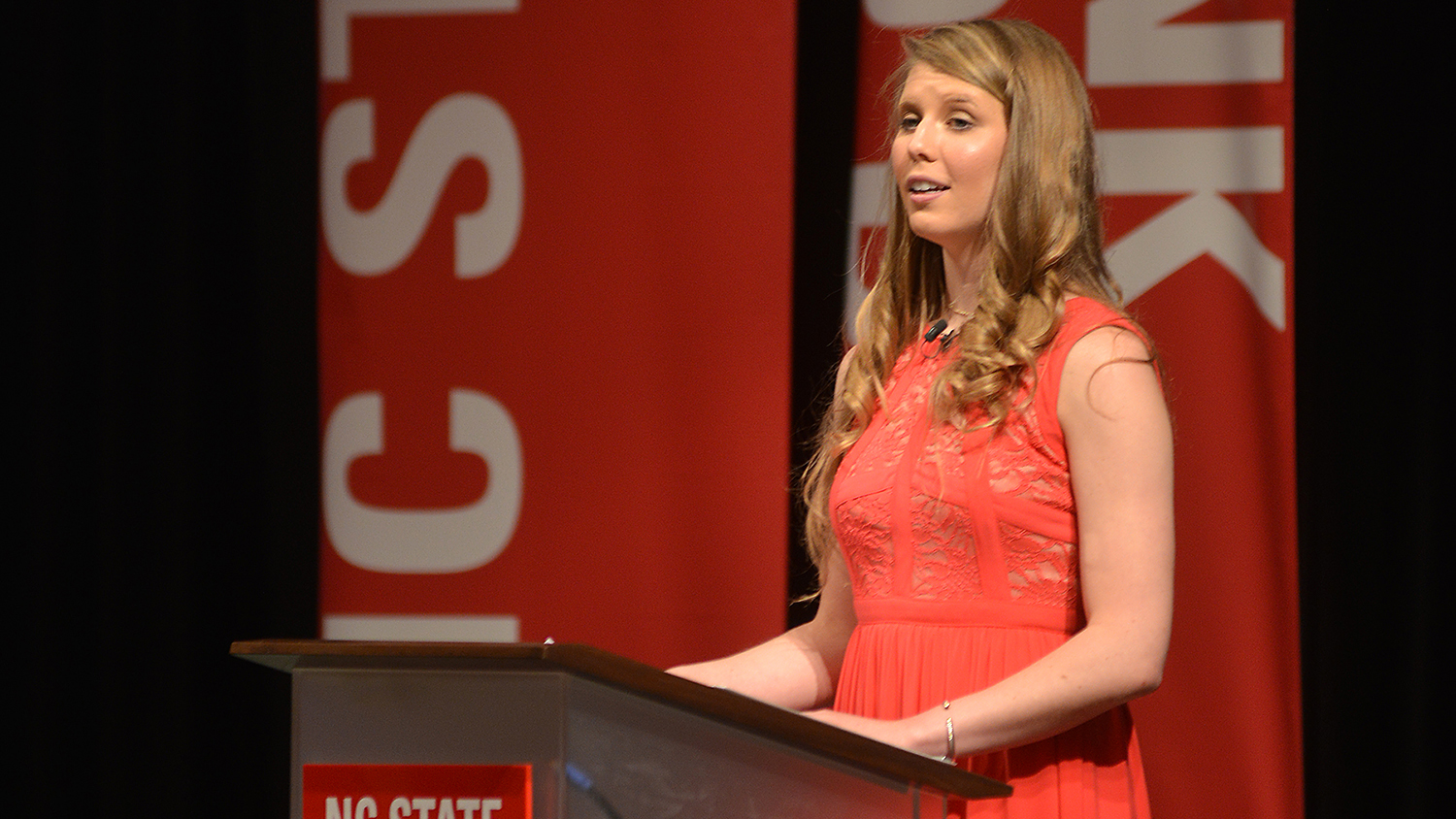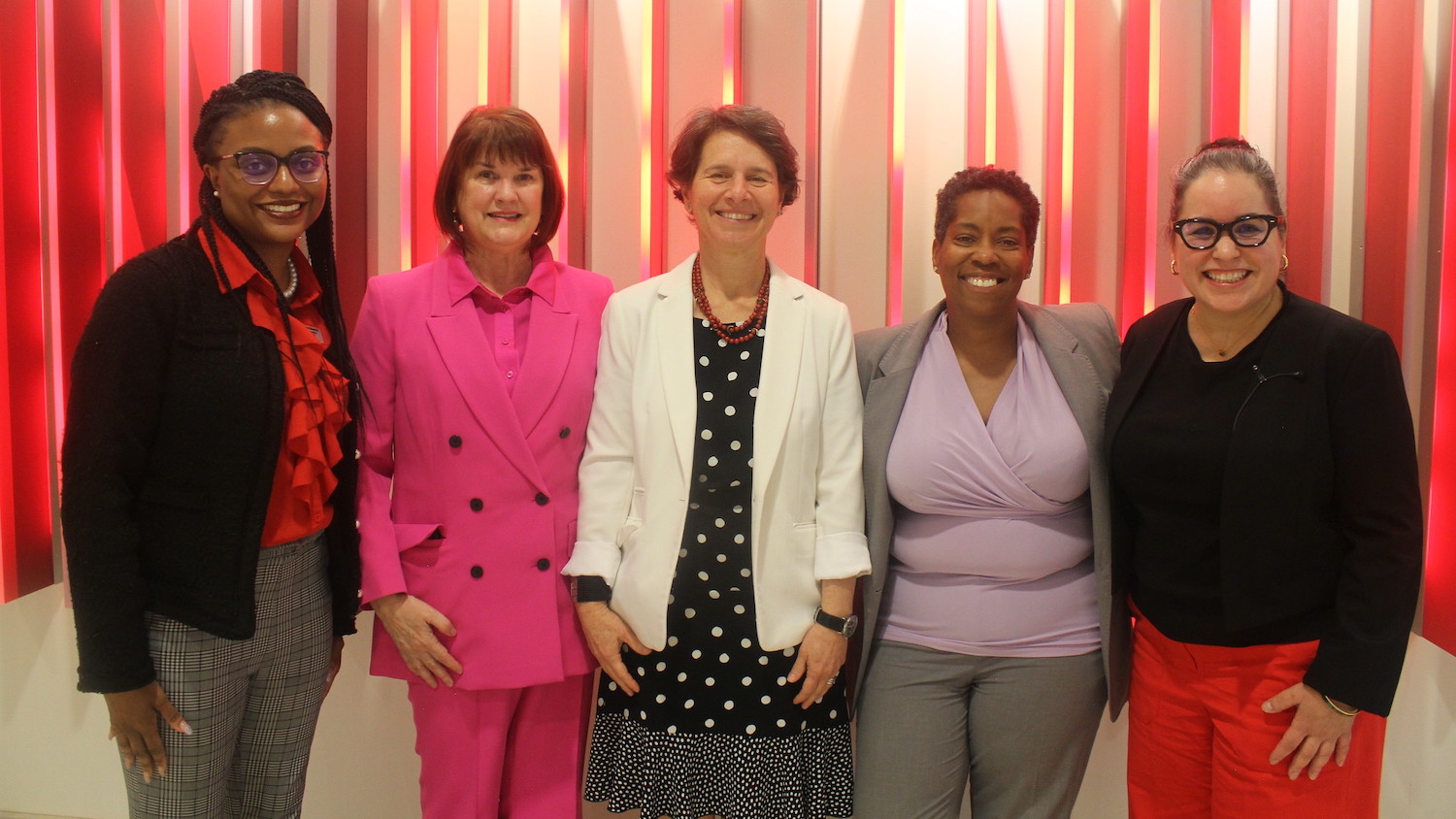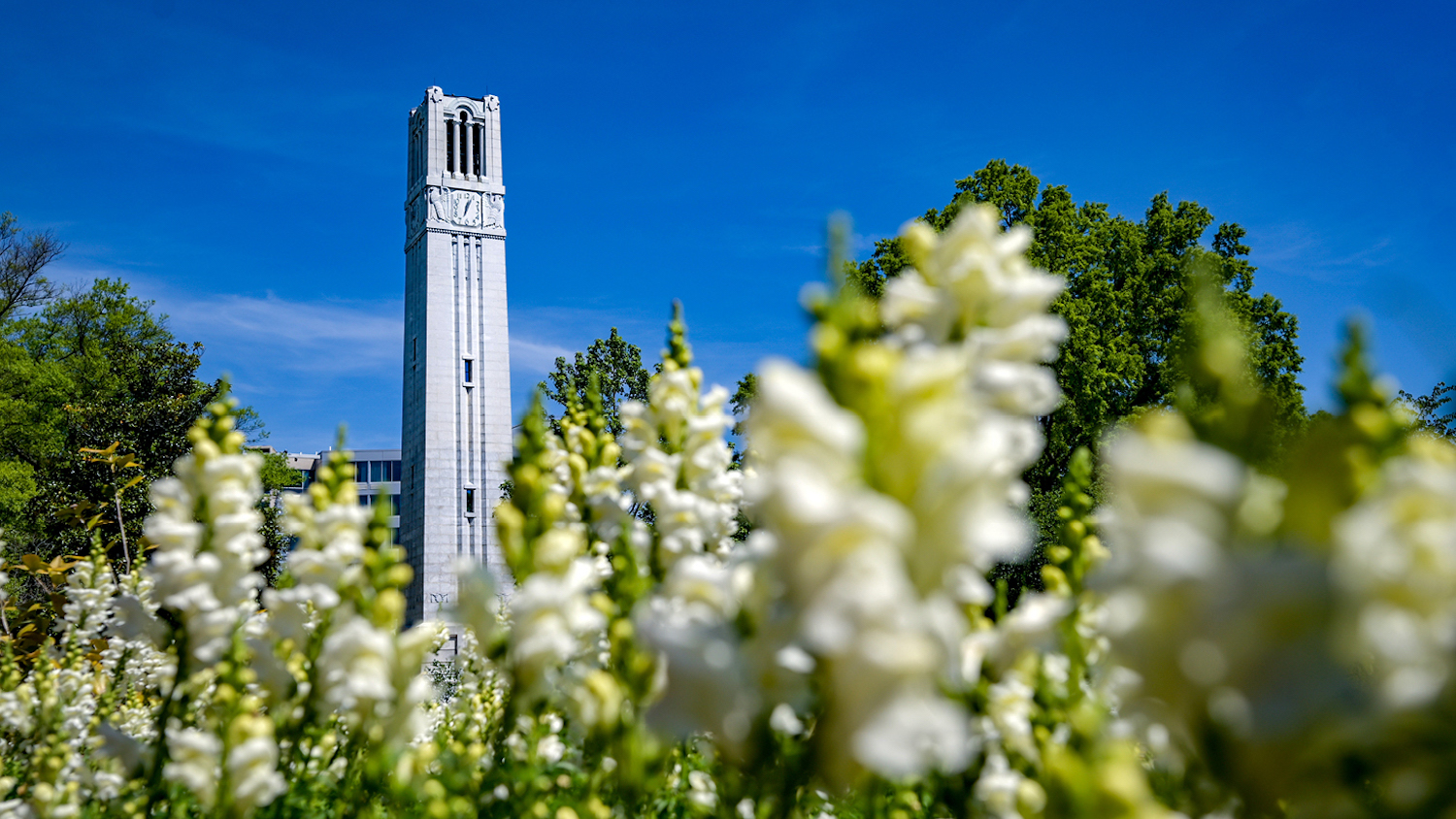Growing a Future

As a high school student, Katelyn Thomas had her heart set on attending NC State University.
When she didn’t get accepted into the freshman class, instead of allowing college admissions obstacles to deter her from her aspirations, Thomas devoted her efforts to an alternative path that would still lead toward her dream of working in agriculture — and her dream of attending NC State, where she is now a senior.
“It was in high school that I realized that agriculture was my passion and something that I always wanted to be a part of my life,” Thomas said.
Growing up on a farm in Broadway, NC, Thomas witnessed what a huge impact farming had on the lives of her family. As she got older, Thomas became more involved with farming and enrolled in agriculture classes at her high school.
“I will be the fifth generation of my family involved in farming and agriculture,” she said. “I would never want to trade this lifestyle.”
After receiving an initial denial from NC State, Thomas refused to give up hope of getting into her first-choice university. By invitation, she became an inaugural member of NC State’s STEAM program and enrolled at UNC-Charlotte for her freshman year with the intent of later transferring.
STEAM — which stands for Student Transfer Enrollment, Advising and Mentoring — acts as an alternative admissions pathway for North Carolina students interested in pursuing a degree in agriculture, especially those from rural areas. STEAM is designed to support the academic development of select students while preparing them for the demands of earning an NC State degree.
“This program would give me the opportunity to fulfill my dream.”
By joining STEAM, select students are able to begin their higher education at another North Carolina institution and have the opportunity to participate in special NC State activities that support their academic development.
These activities include members returning to NC State’s campus once a semester during their freshman year for STEAM Weekends. These weekends include athletic activities, community service projects, and academic and admissions workshops.
“My freshman year, I attended UNC-Charlotte and, as promised, my STEAM advisers followed me every step of the way,” Thomas said. “I kept my grades up, attended the STEAM events and finally received the acceptance I had been waiting so long for from NC State.”
Upon successful completion of the program, which includes academic performance measures, students are guaranteed admission into the major to which they originally applied in the College of Agriculture and Life Sciences for their sophomore year.
STEAM is one of two initiatives supported by the college’s Farm to Philanthropy program, which also includes ASPIRE, or ACT Supplemental Preparation in Rural Education. Both initiatives share the goal of better preparing rural North Carolinians for admission into and for the rigors of NC State.
Farm to Philanthropy was established by a $3 million dollar gift to CALS from Dr. Joseph K. and Deborah Kapp Gordon of Raleigh intended to expand opportunities for rural students’ access to an NC State education.
“NC State is a land-grant institution — the people’s institution,” Joe Gordon said at the time the gift was announced. “The Farm to Philanthropy program creates a second chance for students who may not have been competitive enough to be accepted to NC State right out of high school.”
Thanks to STEAM, Thomas is now proudly majoring in agricultural business management and is a part of the CALS Honors program. Her involvement with STEAM has supported and helped propel her toward a future career in agriculture.
Through internship opportunities, Thomas has already gained hands-on experience in agricultural production with the Developing Future North Carolina Farmers Program. She also learned about marketing and sales through an internship with John Deere at its world headquarters in Illinois.
“I cannot wait to make my mark in North Carolina agriculture,” Thomas said. “Without the support of Dr. and Mrs. Gordon, this would not have been possible.”
– Sarah Keener ’17, Development Communications and Stewardship Student Writer
- Categories:


